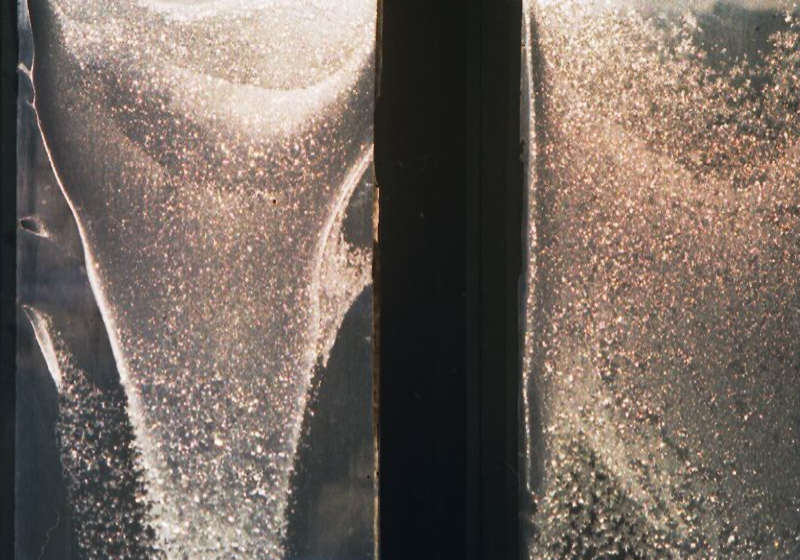: IL A PLU.
You cannot live with a falsehood anymore than another's truth can be lived for you, and the falsehood does not make itself known for many years. Or you can live with a falsehood, in the way that one may be said to accommodate (to make room for when there is no room): rented rooms, lodgings, the two windows facing East and West. Rooms are sometimes said to be spacious, as the ridge of woods over the river and the view of the river through them at bends in the path promote the perception of space. "It is too much." That is nothing we see, did you notice? What there cannot be enough of, as all the words that are nothing beyond the moment of their mouthing. Did you notice there are words that should not be said, until they are demonstrated? The most broken of poems demonstrate the difficulty of their expression, this difficulty we forget endlessly in conversation. One voice follows another, without direction. But the words spoken depend on each other, listening for each other. How few images there are when words are used for speaking, breaking (why are the vowels not identical?) over one another and breathing. There is still air to be circulated, respiratory. The spoken word is the product of agitation, addressing that problem, whether or not to be silent, and produces agitation in return, if I breathe your name into you. I know what I cannot give you, yet all my actions refuse to recognize this limitation. How do I know? What do we consider to be knowledge, accepting the authority of a process over which there is no possibility of intervening. In place of the possibility should be written chance and accident. That is what happens here, whether the words are typed or lettered by hand. We are always only at the boundary between two languages. The one knows itself through the other, you said, and remembering it now, only two days later, the thought that is my thought, in the other language, that the numberless lives lost must have been for something, not nothing, at least not only the view of the river through the bend of the path beyond the beech trees and pines, disliking descriptions of nature as much as you, despite the poem by Ponge. The landscape dissolves in the emotion projected on to it, leaving nothing behind the declaration of the subject. How satisfying that must feel, broadcasting my state, my mind. So one seeks interference, resistance, negation. The boundary is the unit of time, and it confines, defines, every moment and the perception configured there. The reflection you mentioned doubled the image in opposed, even contradictory, manifestations of motion and stasis.
